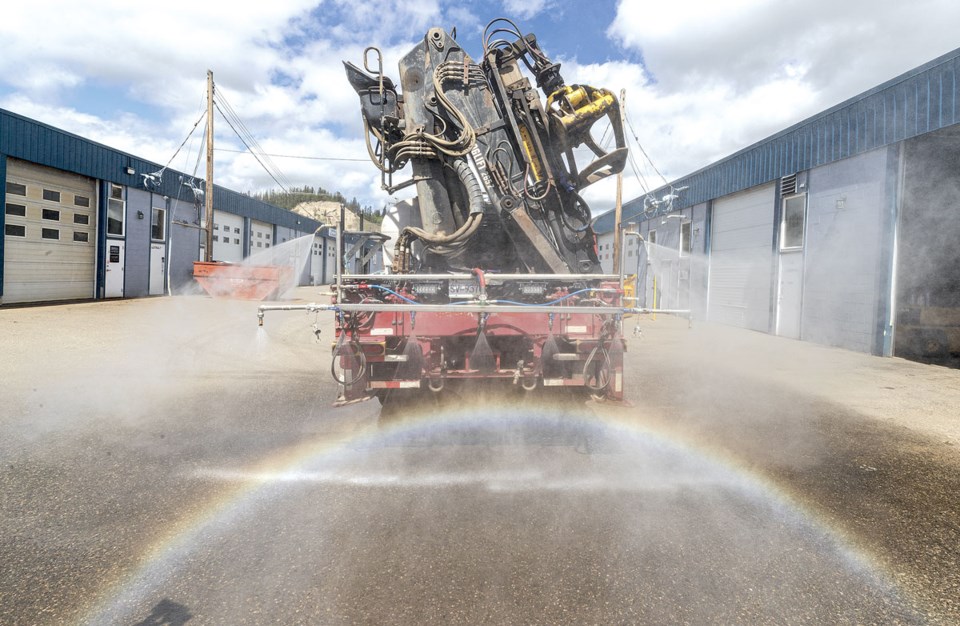In the 1960s, Ben Ginter of the Caribou Brewing Company here in Prince George came up with a new idea: A pilsener beer sold in a can, not a bottle. Beer had been sold in cans for decades in a few U.S. markets by that point, but in Canada, the major breweries had long stuck with reusable brown glass bottles. Ginter gave the cans a try and when things took off, the big breweries followed suit. Now you can buy almost anything in a can, thanks to a little P.G. ingenuity.
This is an example of the kind of innovative, outside-the-box (or bottle) thinking that we’re used to here in the Northern Capital.
One of the things that makes Prince George so special is its isolation. We’re eight hours from everywhere, tucked away in our bowl, and that’s how we like it. Our geography has given rise to a certain kind of mentality, a do-for-ourselves spirit that grew out of the community’s origins as a scrappy pair of rival townsites and the following century of resource-fuelled success.
Living here means being aware of certain realities, one of which is the threat of wildfire. So far, 2024 has been wetter than usual, but that’s no reason to be complacent about the very real danger that forest fires can pose.\
We ran a poll a few weeks back asking people if they keep “go bags” ready in case of a sudden evacuation, and it was interesting to see how many resourceful people are set up to flee in minutes if need be.
That’s one indicator of that PG preparedness. Here’s another: A local construction company has created Eco-Gel, a new environmentally friendly clay-based substance that can be sprayed along rail tracks to prevent wildfires caused by sparks from trains. A truck is fitted with a 1,000-litre tank that holds concentrated Eco-Gel; all the crew has to do is add more water to it and keep spraying. A second unit is designed to ride on train tracks. The tank can even be detached and transported by helicopter to more remote areas. It’s an efficient system.
And it’s something B.C. needs.
Trains run on steel wheels, and on steel tracks, so there’s always the potential for sparks from the metal-on-metal contact. Sparks flying into dry grass and underbrush can, and have, started serious forest fires. In May, residents of Crescent Spur, east of Prince George in the Robson Valley, told the Citizen that they were sure the 174-hectare wildfire that threatened their homes was sparked by a passing train.
It isn’t just towns and villages that are threatened by fire. The rail lines themselves are at risk.
A lot of B.C. railroad infrastructure is made of old, dry timber, much of it soaked in creosote. This makes it extremely flammable. Rail trestle fires can choke the sky with black, oily smoke and are particularly difficult to extinguish. Not only that, a rail fire can cripple much-needed transportation in rural parts of the province.
The LinkBuild team gave its concept a successful try earlier this year on that same Crescent Spur fire, and then was contracted to spray and protect an area near Fort Nelson. Once again, it worked. No fires, and the trains ran on schedule. Now, LinkBuild is eying other rural infrastructure, like utility poles, that could use some gel protection during fire season.
“This is exciting stuff,” Linkbuild owner Phil Toma told us. “It could make a serious impact. We’re kind of on the cusp of it.”
“A made-in-PG solution” is a great thing to be able to say, and while the beer can story is a fun piece of bar trivia, this latest invention will save lives and property. Eco-Gel is a clear example of how strong that PG spirit is here. LinkBuild did what Prince George’s people have always done: Spot a problem, think of a way to fix it and get it done.



